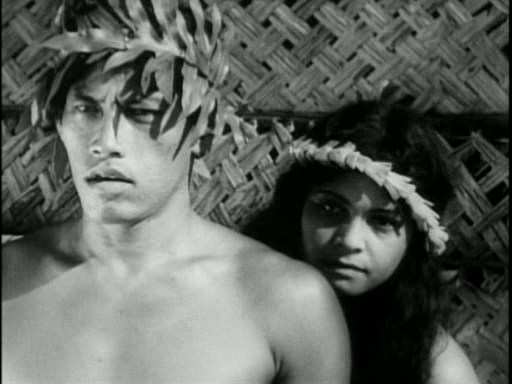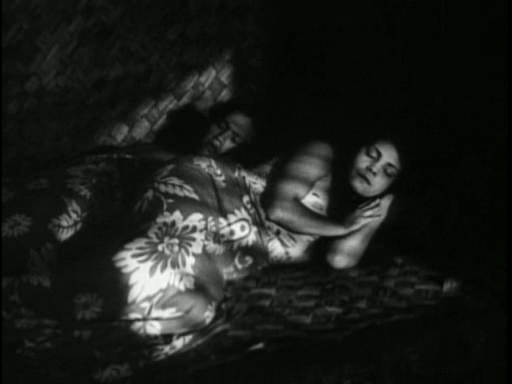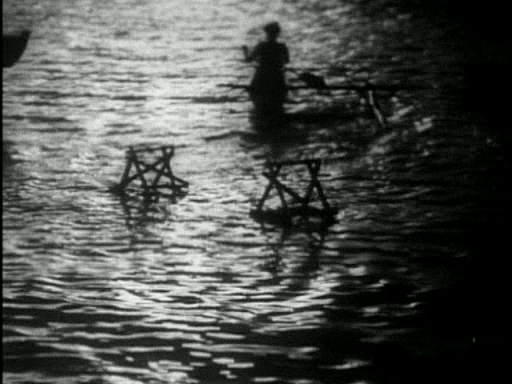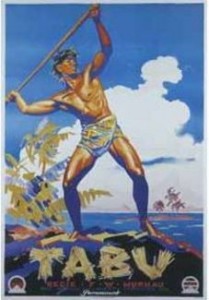|
Genres, Themes, Actors, and Directors:
- F.W. Murnau Films
- Native Peoples
- Silent Films
- South Sea Islands
- Star-Crossed Lovers
Review:
Defined by Time Out as director F.W. Murnau’s “purest and least inhibited celebration of physical sensuality and love”, his final film — made in collaboration with documentarian Robert Flaherty — tells “a simple Pacific islands folk tale”, all done without dialogue or even inter-titles (necessary information is provided through “authentic” notes and letters written by various characters). The first half hour or so presents itself as a beautifully shot travelogue, as two gorgeous young natives (Matahi and Chevalier make a sexy, appealing young couple) flirt innocently with one another and fall in love. Soon, however, the storyline shifts into a tragic tale bearing an eerie resemblance to Romeo and Juliet; be prepared for emotional devastation. Shot in stunning black and white (by Flaherty and Floyd Crosby), the film presents a pristine vision of the South Seas, which — in a subtle yet crucial subtext — is nonetheless slowly being overrun by corrupt colonial forces. Nominated by Peary as one of the best films of the year in his Alternate Oscars book.
Note: This film served as the direct inspiration for King Vidor’s thematically similar Bird of Paradise the following year.
Redeeming Qualities and Moments:
- Matahi and Chevalier’s appealingly natural performances


- Beautiful cinematography


Must See?
Yes, simply for its historical relevance as Murnau’s final film. Listed as a film with historical importance and a Personal Recommendation in the back of Peary’s book. Nominated by Peary as one of the Best Movies of the Year in his Alternate Oscars.
Categories
- Historically Relevant
- Important Director
(Listed in 1001 Movies You Must See Before You Die)
Links:
|





One thought on “Tabu (1931)”
A must, for its place in cinema history.
In agreement with the overview, so I’ve little to add. A rather mystical, yet simple film, told in two chapters: ‘Paradise’ and ‘Paradise Lost’. This is a silent film unlike most silent films, and it doesn’t seem to have lost any of its original power. It’s compact and moves quickly. The performances by mostly non-actors are truly remarkable. And, as hinted at here, the conclusion is certainly among the most devastating in cinema.
I’m looking forward to revisiting the rest of Murnau’s films. This, his last, was apparently a particularly ambitious work (see Wikipedia for the interesting backstory). I’m curious to see if a biography was written of Murnau’s life. He was gay and, like writer Joe Orton, he became quite enamored of a somewhat isolated area filled (as we see in ‘Tabu’) with young boys with fine, slim bodies. (Orton’s choice, over the South Seas, was Morocco.) I’m not saying that speaks of a tendency in gay men to prey on the young – it seems to say more about two talented artists (Murnau and Orton) longing to get away from repression in the most extreme manner possible. I hesitate to speculate beyond that.